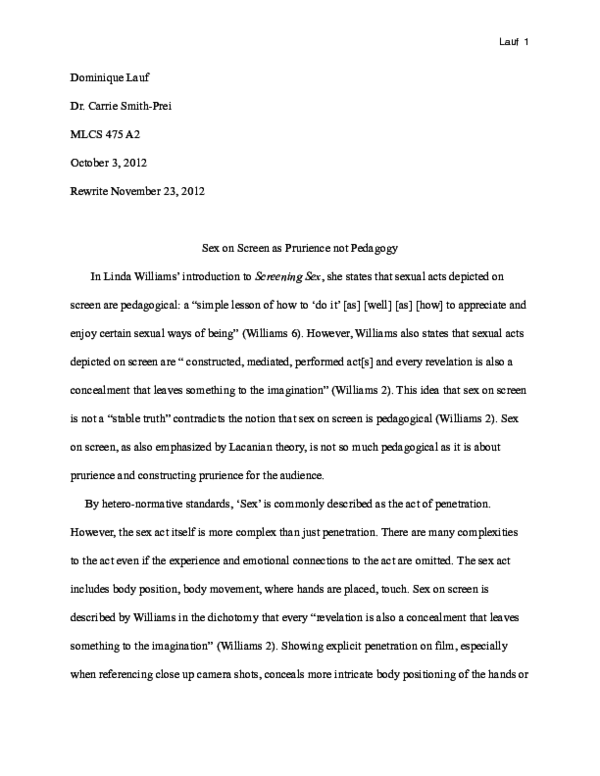

Other philosophers of sexuality believe that a robust distinction between defining a sexual phenomenon and arriving at moral evaluations of it cannot be made, that analyses of sexual concepts and moral evaluations of sexual acts influence each other.

They believe that it is one thing to define a sexual phenomenon (such as rape or adultery) and quite another thing to evaluate it. Some philosophers of sexuality carry out conceptual analysis and the study of sexual ethics separately. Normative philosophy of sexuality investigates what contribution is made to the good or virtuous life by sexuality, and tries to determine what moral obligations we have to refrain from performing certain sexual acts and what moral permissions we have to engage in others. Thus the philosophy of sexuality is concerned with the perennial questions of sexual morality and constitutes a large branch of applied ethics. Normative philosophy of sexuality inquires about the value of sexual activity and sexual pleasure and of the various forms they take. Conceptual analysis (for example: what are the distinctive features of a desire that make it sexual desire instead of something else? In what ways does seduction differ from nonviolent rape?) is often difficult and seemingly picky, but proves rewarding in unanticipated and surprising ways. Conceptual analysis is also carried out in attempting to arrive at satisfactory definitions of adultery, prostitution, rape, pornography, and so forth. Conceptual analysis is carried out in the philosophy of sexuality in order to clarify the fundamental notions of sexual desire and sexual activity. The philosophy of sexuality explores these topics both conceptually and normatively. For it is a natural feature of human beings that certain sorts of behaviors and certain bodily organs are and can be employed either for pleasure or for reproduction, or for both. That is, they are related, on the one hand, to the human desires and activities that involve the search for and attainment of sexual pleasure or satisfaction and, on the other hand, to the human desires and activities that involve the creation of new human beings. What do all these things have in common? All are related in various ways to the vast domain of human sexuality.

Among the many topics explored by the philosophy of sexuality are procreation, contraception, celibacy, marriage, adultery, casual sex, flirting, prostitution, homosexuality, masturbation, seduction, rape, sexual harassment, sadomasochism, pornography, bestiality, and pedophilia.


 0 kommentar(er)
0 kommentar(er)
